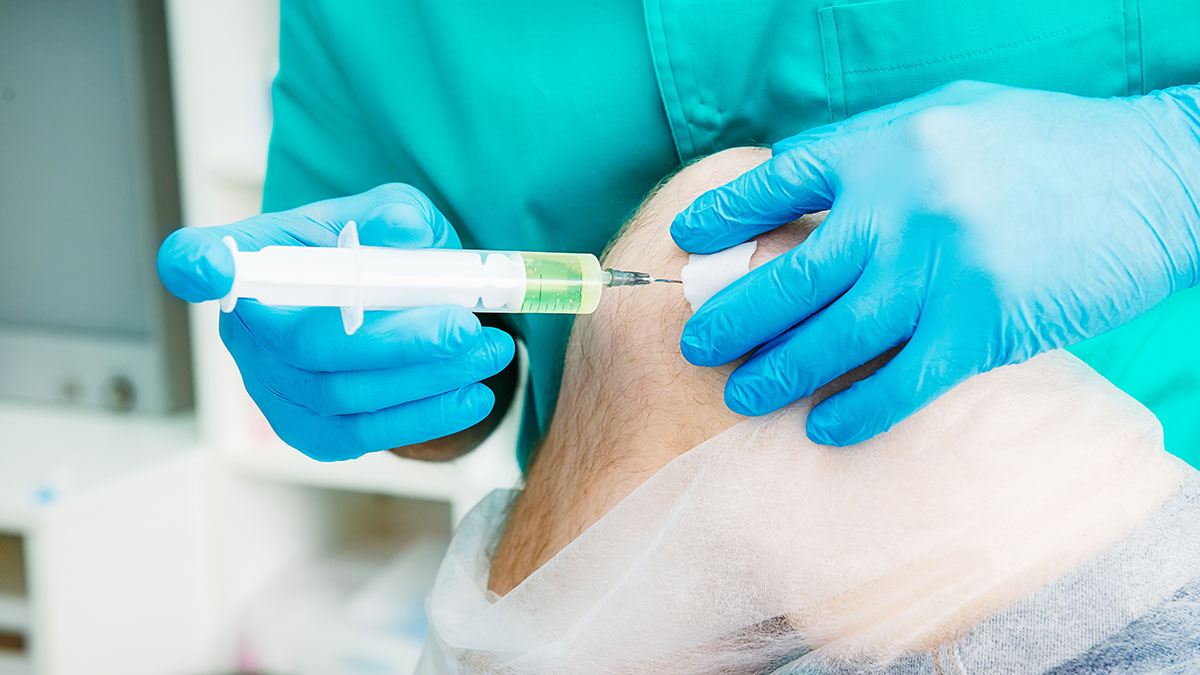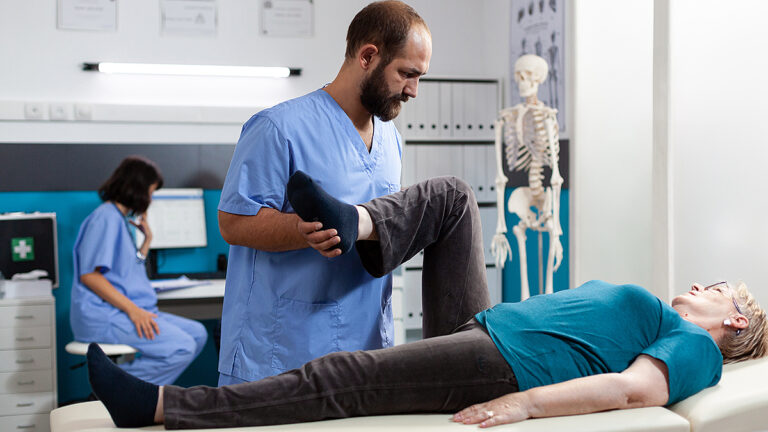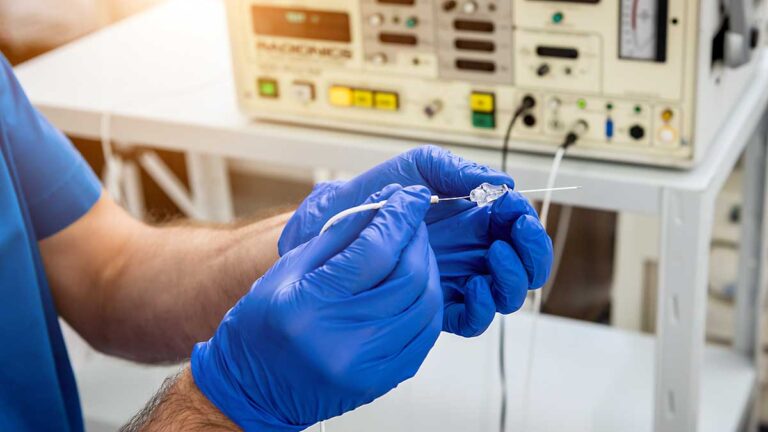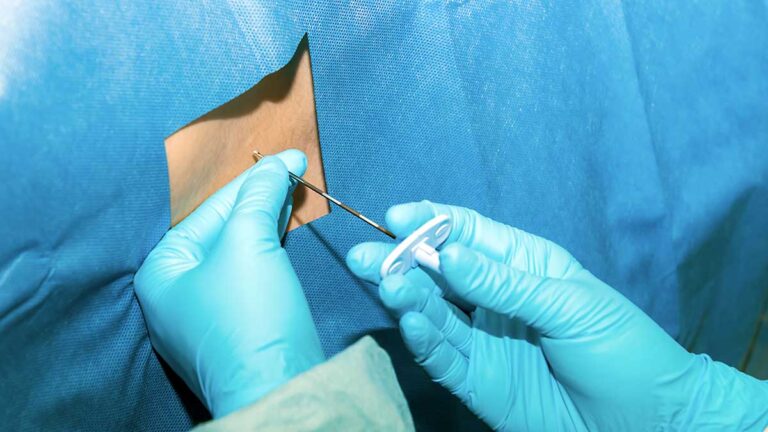Chronic or acute knee pain can significantly limit your ability to move, stand, walk, or exercise. Whether caused by arthritis, injury, or overuse, managing knee pain effectively is critical for maintaining mobility and quality of life. At Allied Spine Institute, we offer advanced interventional pain treatments that are minimally invasive and tailored to the source of your pain.
Non-Surgical & Interventional Treatments for Knee Pain
Our approach emphasizes conservative therapies first. These treatments range from simple injections to more advanced procedures and are listed below from least to most invasive:
1. Corticosteroid Knee Joint Injections
Steroid injections into the knee joint reduce inflammation and relieve pain quickly. This in-office procedure is typically used to treat osteoarthritis, bursitis, or inflammatory joint conditions.
- Recovery Time: Minimal; same-day activity
- Pain Relief Duration: Weeks to months
2. Hyaluronic Acid Injections (Viscosupplementation)
Hyaluronic acid injections improve joint lubrication and cushioning, mimicking the fluid naturally found in healthy knees. This treatment is especially beneficial for patients with mild to moderate osteoarthritis.
- Procedure Duration: 20–30 minutes
- Function: Restores joint movement and reduces stiffness
3. Genicular Nerve Block
A genicular nerve block targets the nerves that transmit pain from the knee. A local anesthetic is injected around these nerves to diagnose and relieve chronic knee pain.
- Used for: Chronic osteoarthritis pain or post-surgical knee pain
- Next Step: If effective, may lead to radiofrequency ablation
4. Platelet-Rich Plasma (PRP) Injections
PRP therapy uses your body’s healing properties. Platelets are concentrated from a blood sample and injected into the knee joint to stimulate tissue repair and reduce inflammation.
- Ideal for: Soft tissue injuries, mild arthritis, early cartilage degeneration
- Benefit: Long-term healing effect, potential regeneration
5. Radiofrequency Ablation (RFA)
RFA involves applying heat to destroy pain-transmitting genicular nerves around the knee. It’s often recommended for patients who received temporary relief from a nerve block.
- Pain Relief Duration: 6–12 months or more
- Outpatient: Performed with local anesthesia or mild sedation
6. Knee Arthroscopy
This minimally invasive surgical procedure uses a camera (arthroscope) and small tools inserted through tiny incisions to remove damaged cartilage, repair ligaments, or clean out debris in the knee joint.
- Conditions Treated: Meniscus tears, cartilage damage, chronic joint inflammation
- Recovery: Faster than open surgery, usually outpatient
Benefits of Interventional Knee Pain Treatments
Customized Pain Relief: Each procedure targets a specific structure or pain signal pathway
Minimally Invasive Options: Most are done in-office or outpatient
Improved Mobility: Reduces pain and improves range of motion
Lower Medication Dependency: Reduces the need for oral painkillers
Covered by Insurance: Most treatments are Medicare and insurance eligible
Integrated Pain Management Approach
Interventional procedures are often most effective when integrated into a broader pain management plan. At Allied Spine Institute, we combine treatments with:
- Physical Therapy
- Weight Management Programs
- Home Exercise Education
- Posture & Mobility Coaching
This holistic approach improves outcomes and helps prevent recurrence.
What to Expect & Next Steps
Not all knee pain patients are immediate candidates for interventional procedures. Age, underlying conditions, and response to conservative care will influence treatment choice. Our team performs comprehensive diagnostic evaluations to identify the root cause and recommend the best action.
Don’t let knee pain define your life. With our expert care, you can find lasting relief and regain your mobility.









